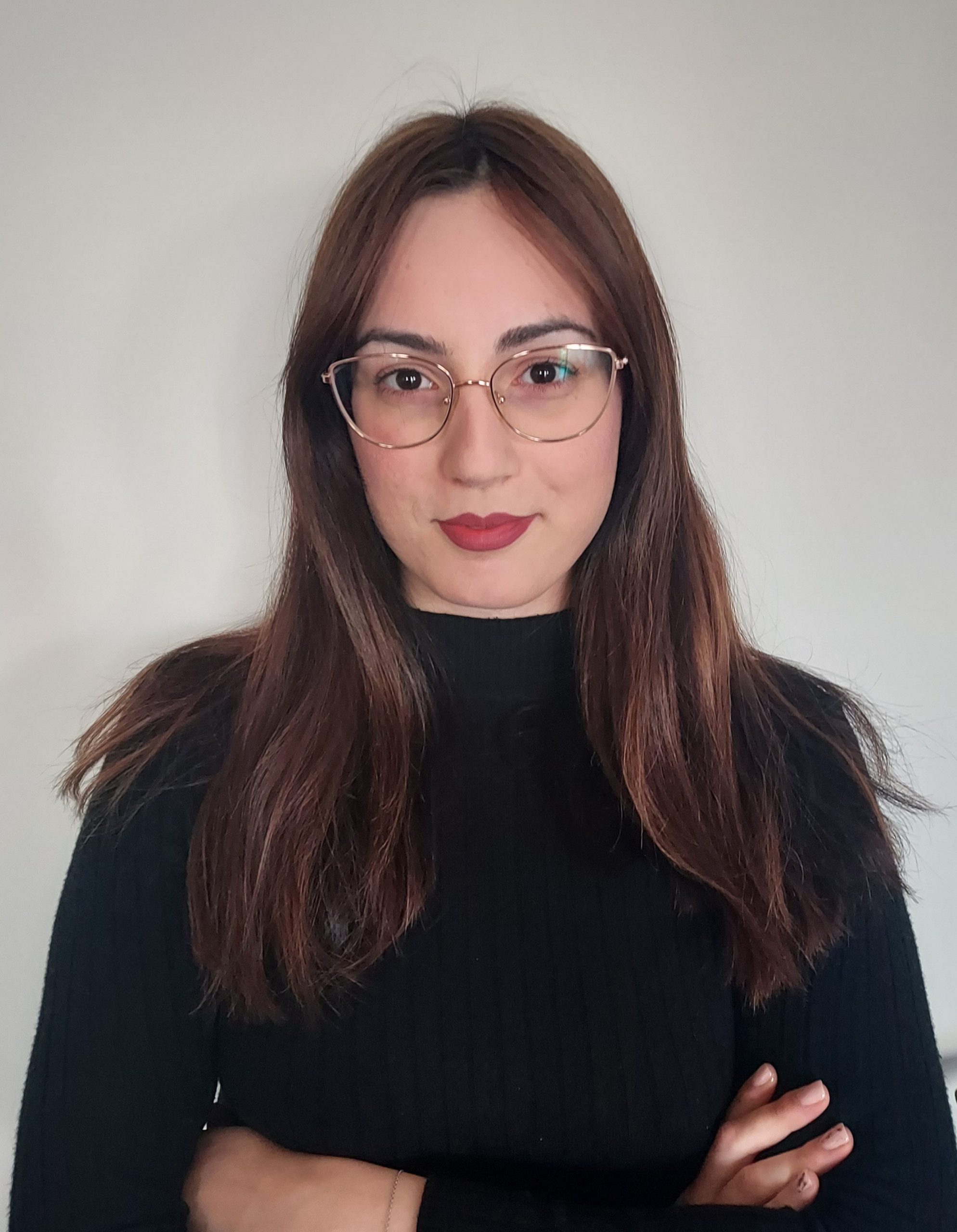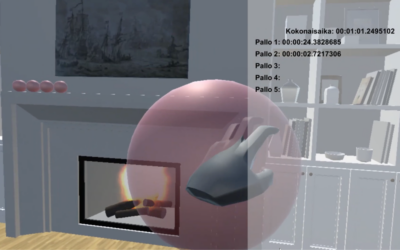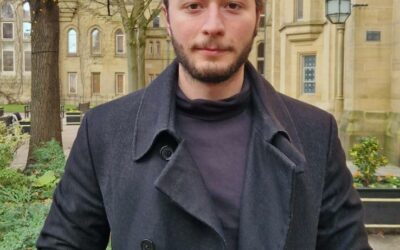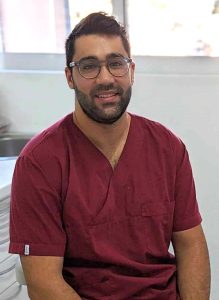
Emmanouil Chachlakis (DDS, MSc) – Dental Surgeon
A quick intro:
Emmanouil is the owner of a private dental clinic in Greece, the ProSmile dental studio, with a focus on dental implant surgeries and oral surgical operations. Emmanouil has completed his MSc in Oral and Maxillofacial surgery in the University of Manchester, UK and his clinical training in the Oral Maxilo-Facial Surgery department of Glan Clwyd Hospital in Rhyl, Wales.
Contact details:
- Facebook: https://www.facebook.com/profile.php?id=61551067203218
- Email: emchachlakis@gmail.com
VR has been used in various clinical, invasive procedures as a distraction technique, to help patients manage pain and anxiety in such situations. The findings of relevant, clinical studies have supported the potential of VR to reduce the perceived pain of patients and improve their mental health state during such procedures (for example, during chemotherapy, urological endoscopies or burn wound dressing changes). VR could be used in a such way while performing dental surgeries or other dental procedures (which has been explored by a few studies so far). Also, this might be a good solution for those with dental phobia, although this has been previously explored again by a couple of trials so far.
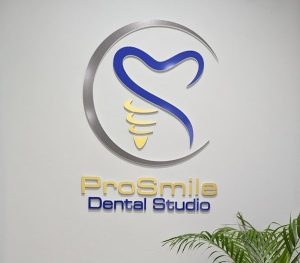
ProSmile Dental Studio (Logo)
So, we asked Emmanouil to share his thoughts around the merit of VR as a distraction technique for dental surgeries, considering all the benefits and challenges that might be involved in the daily, clinical practice of a dental surgeon.
- As a dental surgeon, with expertise in dental implant surgeries, would you say that using VR as a distraction technique during surgery could be helpful for patients, especially for ones who suffer from dental phobia?
I believe that the use of VR during complicated surgical procedures such as implant surgeries could be of significant value. Most patients, prior to the clinical operation, report high anxiety associated with the clinical setting and the view of the surgical instruments that can bring back memories of a painful or unpleasant experience from the past. Implants placement is mostly carried out under local anesthesia, therefore, the patients are fully conscious of their surroundings. VR could work as a means of distraction, allowing the patients to familiarize themselves with the clinical environment and minimize their disturbing surgical experience.
- Do you think that the easiness of using VR would depend on the type of the dental procedure and the medical tools you use?
That is correct. There are procedures in dentistry that require the involvement of one or even two dental assistants. Additionally, due to the lack of space and physical light intraorally, the dentist often needs to move into different positions in order to find the appropriate accessibility for the treatment. Therefore, the use of VR would be harder in more complicated procedures and that should be taken into account on the way it is manufactured and during its set-up in the clinical setting.
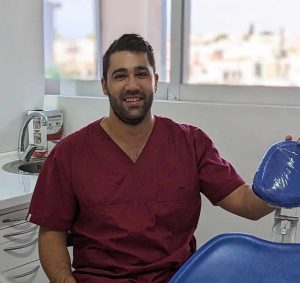
Emmanouil Chachlakis in ProSmile Dental Studio
- Do you think you would need training on how to set up and use VR during surgery?
Absolutely. I think training and accreditation would be necessary. However, I believe most clinicians nowadays have a good grasp of technology and it would probably take a small number of sessions for the dentists to get used to the VR gear and its workings. Like every new clinical implementation, it requires dedication and practice first in more simple procedures and progressively in more complicated ones.
- Would you be motivated to uptake such training if it were available and at an affordable price?
I would be highly motivated to join VR training if it were available as the pain and stress management for the patients is one of the most significant challenges on today’s dentistry. Such a qualification would be an extra tool for stress management on my patients and when used in combination with other existing techniques I am sure it can be very effective.
- Do you identify any other challenges that would stop you from using VR during a surgery on a daily basis?
Time constraint would be a significant challenge for use of VR on daily basis. When it comes to more routine operations, most dentists aim to work fast and maintain a fast flow of patients in order to cover the needs of their practice. So, as it stands now, I believe VR would be of use in lengthier and more complicated operations.
- Overall, do you see yourself using VR for this purpose if you had access to a VR headset, suitable software and training to do so?
I would be very interested in using VR in my clinic and I am very confident that with appropriate patient selection, correct training of the stuff and education of the patients, the use of VR can be very beneficial for anxious patients, especially when it comes to more complicated dental surgical procedures. I would be happy to collect more information about ongoing trials and also invest on clinical and training courses in order to obtain the skills on using VR. That could make a stressful dental appointment a much more pleasant experience for my patients!
After this “A quick look on…” the use of VR in dental surgeries, we thank Emmanouil for his time and expertise and we hope to see more clinical studies on how VR could be employed in complicated dental surgeries for increasing patient acceptability and bettering their experience.


